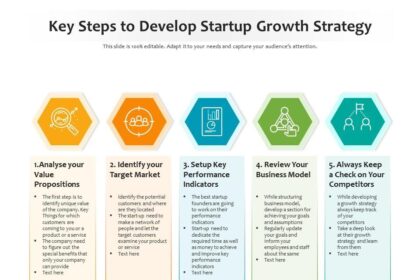In the ever-evolving landscape of entrepreneurship, where fresh ideas bloom in the fertile soil of innovation, two vital conduits have emerged to nurture and propel nascent ventures: startup incubators and accelerators. These dynamic ecosystems are more than mere support systems; they serve as crucial launchpads for aspiring entrepreneurs eager to transform their visions into reality. As the global startup culture thrives, understanding the distinct roles and offerings of incubators and accelerators becomes essential for founders seeking to navigate their journey toward success. From mentorship and funding to community building and skill development, this article delves into the intricate nexus between these two entities, exploring how they empower startups to navigate challenges, seize opportunities, and ultimately reshape industries. Join us as we unpack the essence of these incubating forces and illuminate the pathways they forge for the next generation of innovators.
Understanding the Core Differences Between Incubators and Accelerators
When it comes to nurturing startups, incubators and accelerators serve distinct purposes yet share a common goal: fostering entrepreneurial growth. Incubators typically focus on the long-term development of nascent ideas and businesses, providing a supportive environment where fledgling companies can refine their concepts over an extended period. They often offer a range of resources, including mentorship, office space, and access to networks, allowing startups the time to iterate on their product and build a sustainable business model.
On the other hand, accelerators are designed for speed and scalability, putting emphasis on rapid growth and development. These programs usually last for a fixed term, culminating in a demo day where startups pitch to investors. Participants in accelerator programs are often more established startups looking for enhancement in their operations or funding. Key elements of accelerators include:
- Time-limited engagement: Programs generally span three to six months.
- Access to capital: Many accelerators provide initial funding in exchange for equity.
- Intensive mentorship: Focused guidance and learning provide startups with frameworks for rapid improvement.
| Feature | Incubators | Accelerators |
|---|---|---|
| Duration | Long-term (1-2 years) | Short-term (3-6 months) |
| Focus | Business development | Growth and scaling |
| Funding | May not provide funding | Often provides seed funding |

Maximizing Your Startups Potential: Choosing the Right Program
Choosing the right program for your startup can be a game changer in propelling your business towards success. Not all incubators and accelerators offer the same benefits; thus, it’s essential to tailor your decision to your startup’s specific needs. Consider the following factors when making your choice:
- Mentorship Opportunities: Seek programs that connect you with experienced mentors who can provide guidance based on their own entrepreneurial journeys.
- Networking Potential: Look for programs that facilitate networking with potential investors, peers, and industry experts.
- Investment Access: Evaluate whether the program offers financial support, such as seed funding or equity investment.
- Resources and Facilities: Identify programs that provide access to office space, tools, or technical resources vital for your startup’s growth.
Once you have narrowed down your options, it can be beneficial to compare key elements of various programs. Below is a simple table summarizing these important aspects, aiding you in making an informed decision:
| Program | Mentorship | Funding Support | Duration |
|---|---|---|---|
| Incubator A | Yes | $100K Seed | 6 Months |
| Accelerator B | Limited | $50K Equity | 3 Months |
| Program C | Extensive | $200K Grant | 12 Months |

Essential Strategies for Engaging with Mentors and Networks
Creating meaningful connections with mentors and networks is essential for fostering growth within the startup ecosystem. Begin by identifying individuals whose expertise aligns with your goals and aspirations. Research their backgrounds and choose those who resonate with your vision. When reaching out, personalize your communication by referencing specific projects or insights they’ve shared, and express genuine curiosity about their journey. Being authentic and respectful of their time will facilitate a more engaging and fruitful interaction. Consider attending networking events or joining online communities to meet potential mentors; these platforms often provide opportunities to connect with knowledgeable professionals willing to share their experiences.
Once a connection is established, nurturing that relationship is crucial. Schedule regular check-ins and provide updates on your progress; this shows your commitment and allows mentors to offer timely advice tailored to your current challenges. Additionally, be receptive to feedback and willing to implement changes based on their insights. Importantly, create a reciprocal relationship by offering your skills or knowledge in return, ensuring that both parties benefit. Engaging with peers within your network can also lead to collaborative opportunities and shared resources vital for startup success. To illustrate how mentorship can evolve, consider the following table:
| Stage of Relationship | Key Actions | Expected Outcomes |
|---|---|---|
| Initial Contact | Research & Personalize | First Impression & Connection |
| Building Rapport | Regular Check-ins | Deepened Trust & Understanding |
| Long-term Engagement | Offer Value | Mutual Growth & Opportunities |

Measuring Success: Key Metrics for Evaluating Program Impact
Effective evaluation of the impact of startup incubators and accelerators requires the use of specific metrics that speak to the overall success and growth of participating startups. One of the most critical elements to measure is funding received, which provides insight into how well startups can attract investors post-incubation. Additionally, tracking the survival rate of startups after leaving the program is essential, as it indicates the long-term viability of the support provided. Other vital metrics may include:
- Job Creation: Number of jobs created as a result of the program.
- Revenue Growth: Percentage increase in revenue pre- and post-incubation.
- Market Reach: Number of customers acquired during and after the program.
- Follow-on Investment: Amount of additional funding secured post-program.
Furthermore, qualitative metrics, such as entrepreneur satisfaction, can significantly enrich data collection. Surveys and interviews can provide deeper insights into the perceived value of mentorship, workshops, and networking opportunities, which are pivotal for growth yet often intangible. To facilitate a clear understanding of these key performance indicators, the following table summarizes important metrics for tracking success:
| Metric | Description | Purpose |
|---|---|---|
| Funding Received | Total investment raised by startups | Assess attractiveness to investors |
| Survival Rate | Percentage of startups still operational | Gauge effectiveness of the program |
| Job Creation | Jobs created by startups during incubation | Measure economic impact |
Future Outlook
As we reach the conclusion of our exploration into the intricate world of startup incubators and accelerators, it becomes clear that these catalysts of innovation offer not just a launchpad, but a labyrinth of opportunities for aspiring entrepreneurs. Navigating this nexus of resources, mentorship, and community support can seem daunting, yet it is within these very challenges that the seeds of success are often sown.
Whether you’re a fledgling entrepreneur with a spark of an idea or a seasoned innovator seeking to take your venture to new heights, understanding the landscapes shaped by incubators and accelerators can be your guiding compass. Each program, with its unique ethos and offerings, serves as a testament to the diversity of approaches within the entrepreneurial ecosystem.
As you embark on your own journey, consider the tools available to you, the connections you can forge, and the wisdom you can gain along the way. The world of startups thrives on collaboration and growth, and by engaging with these programs, you not only enhance your potential but also contribute to a vibrant tapestry of innovation.
In this ever-evolving landscape, the nexus of startup incubators and accelerators promises to remain a pivotal point for those ready to dream big, adapt, and ultimately thrive. Your journey starts here—navigate it wisely, and who knows what heights you might reach?



